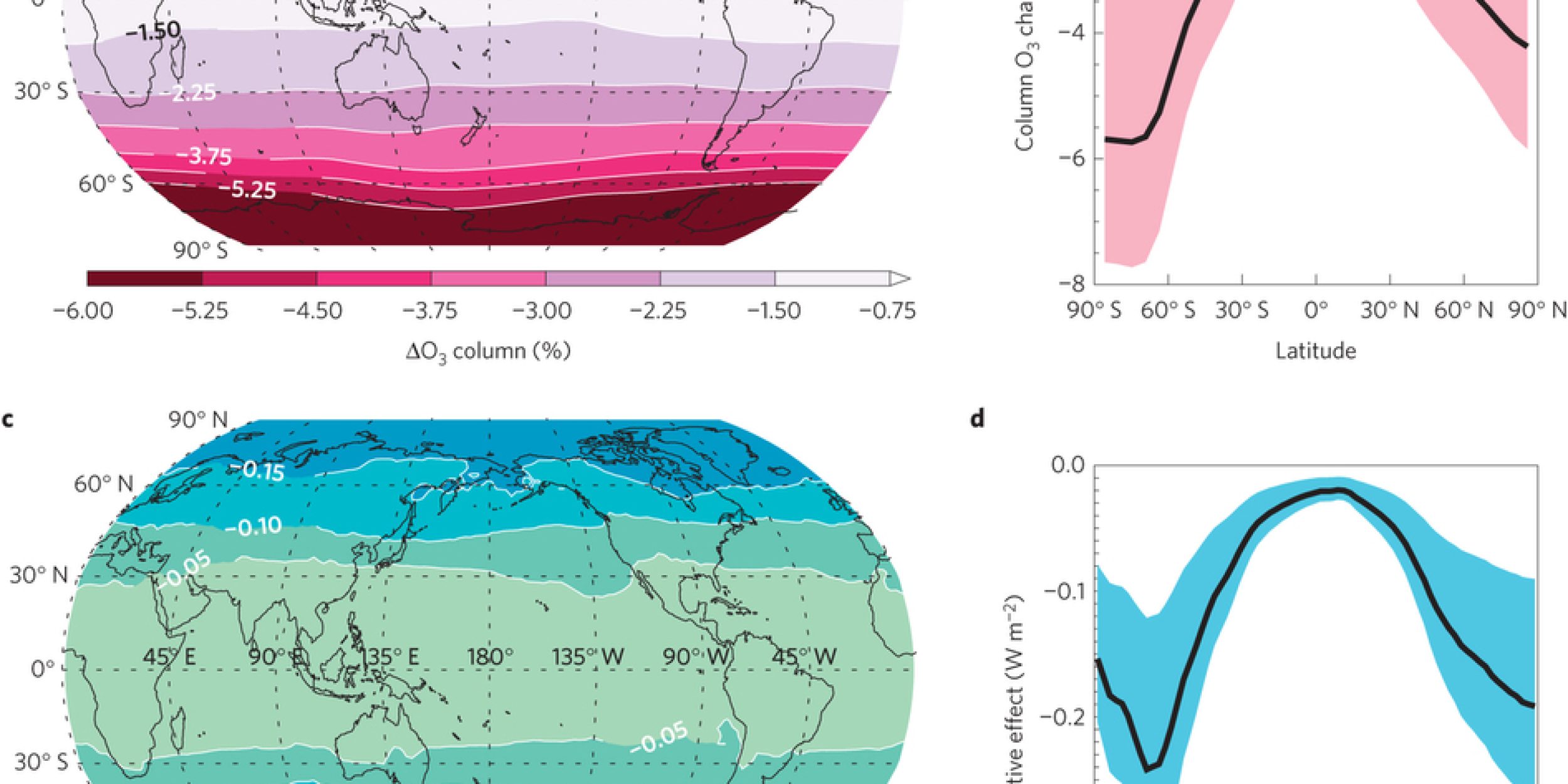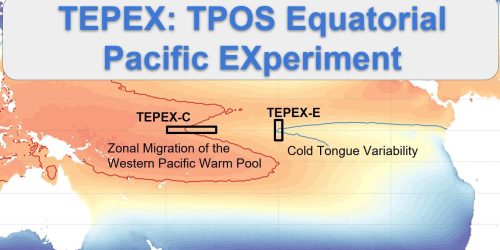

Although the increase is from enhanced human activity, the precise activities responsible for the increase are not understood. The result has implications for stratospheric ozone, climate, and policy because dichloromethane, while it contains chlorine that adds to ozone-depleting gases in the stratosphere, is not controlled by the Montreal Protocol. Short-lived chlorinated gases emitted from human activities historically have not been controlled by the Montreal Protocol because their past contributions to ozone depletion were relatively small and constant over time.
This study suggests that a reconsideration of appropriate use magnitudes may be needed for this class of gases to ensure that their impacts remain small in the future and not offset the benefits to stratospheric ozone provided by the Montreal Protocol.
Access the article at http://www.nature.com/ngeo/journal/v8/n3/full/ngeo2363.html.
Efficiency of short-lived halogens at influencing climate through depletion of stratospheric ozone











